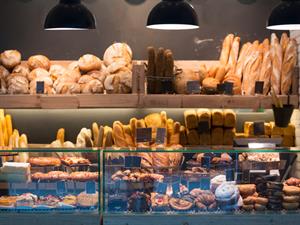
PUMPA - SMART LEARNING
எங்கள் ஆசிரியர்களுடன் 1-ஆன்-1 ஆலோசனை நேரத்தைப் பெறுங்கள். டாப்பர் ஆவதற்கு நாங்கள் பயிற்சி அளிப்போம்
Book Free DemoTo speak about types of shops, you need the appropriate vocabulary. Part 1

Petrol station - a place where you can buy petrol;
Antique shop - a shop where old, and often rare or beautiful objects are sold;
Chemist‘s - a shop where you can buy drugs, soap, beauty products, etc;
Cash dispenser, cash machine - a machine, usually in a wall outside a bank, from which you can take money out of your bank account using a special card;
Flea market - a market where you can buy old or used things cheaply;
Cash-and-carry - a large shop where people, usually from another business, can buy large amounts of goods cheaply and take them away immediately;
Bakery - a shop where you can buy bread, cakes, etc;
Boutique - a small shop that sells fashionable clothes;
Newspaper stand, newsagent’s - a shop that sells newspapers, magazines, and things like sweets and cigarettes;
Haberdashery - cloth, pins, thread, etc. used for sewing, or a shop or a department of a large store that sells these;
Garage sale - an occasion when people sell things, often in their garage or outside their house, that they no longer want;
Delicatessen - a shop, or a part of a shop which sells cheeses, cooked meats, salads, etc;
Hypermarket - a very large shop, usually outside the centre of town;
Trading post - a small place, especially in the past, far from other places in which people live, where goods can be bought and sold or exchanged;
Bucket shop - a travel company that sells aircraft tickets at a low price;
Pet shop - a shop where you can buy animals that you may keep at home;
Stationer’s - a shop where you can buy pens, paper, and other things for writing.
Examples:
New York was originally a Dutch trading post.
Will you go to the bakery?
Where is the best pet shop in this town?